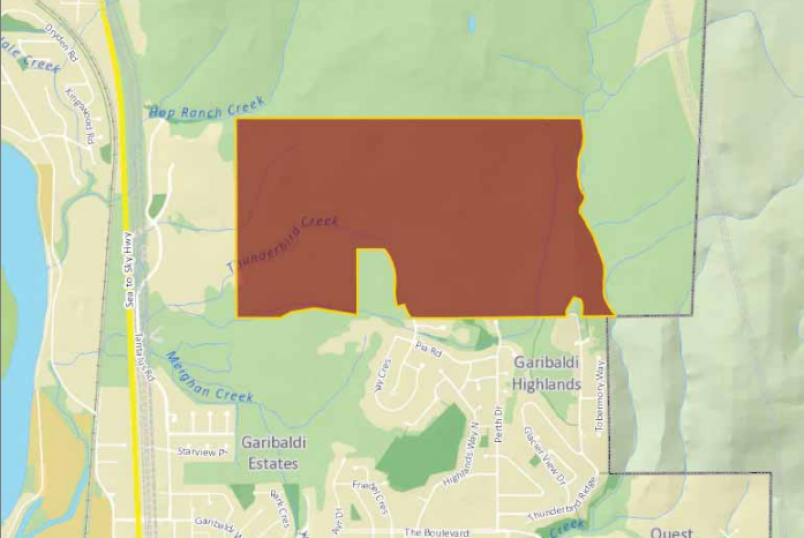The answer is still no.
Councillors voted to turn down an Official Community Plan amendment at first reading that would allow Bob Cheema to develop his lands north of the Garibaldi Highlands.
The proposal to expand the community’s Growth Management Boundary for district lots 509 and 510 came to council on Oct. 2.
The Cheemas purchased the land in 2006 and have been unsuccessful before different councils, such as in 2013, asking for the population threshold to be removed.
Currently, the more than 400 acres of land can’t be developed until the population of Squamish reaches 22,500 and six “precursor policies” are adopted.
This council voted 4 to 2 against the project moving forward.
Councillors Susan Chapelle and Ted Prior both supported the project, which includes a mixed-use development and "mountain biking hub." But a majority comprised of Mayor Patricia Heintzman and councillors Karen Elliott, Doug Race and Jason Blackman-Wulff opposed the proposal, based on upholding the growth management boundary.
Coun. Peter Kent was absent from the meeting.
The Cheema family has drafted an early master plan for the development and organized their own consultations with the Squamish Off-Road Cycling Association and the wider community. The land features several crucial connecting mountain biking trails that are on private property.
Heintzman thanked the applicant for consulting with the community.
“The growth management boundary is really about fiscal management of the community, and not growing your infrastructure outside of your immediate vicinity for taxation reasons,” she said. “We’re very spread out; we have very few taxpayers.”
“Once we hit that 22,500 I suspect council of the day will be very interested in pursuing this project, particularly if it’s done with the sensitivity this one appears to be moving toward,” she added.
Coun.Ěý Chapelle, in support of the project, argued that developing on benchlands is ecologically smart, and the preservation of mountain biking trails was an essential asset to the community.
Ěý
Ěý



